What Is A Jestrum Piercing? Cost, Jewelry, And Aftercare
Unleash your inner rockstar and add a touch of charm to your smile with this piercing.
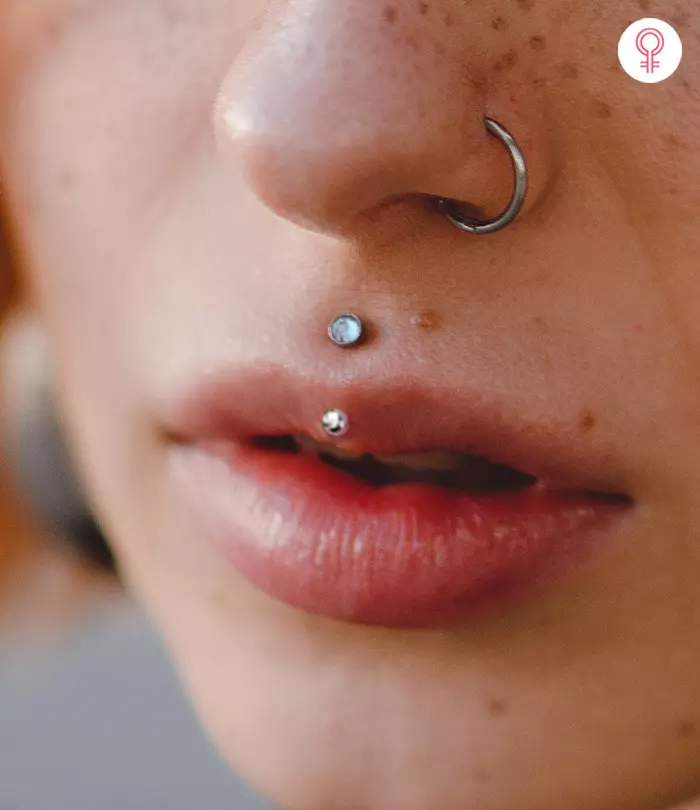
Image: StyleCraze Design Team
If you are looking for a lip piercing that is a little different from the usual suspects, the jestrum piercing might just do the trick! This trendy piercing style offers a distinctive look that draws attention to the center of the upper lip and enhances your facial features. The jestrum piercing, dating back several centuries, holds a certain mystique and allure for piercing enthusiasts and newbies alike. With its placement and versatile jewelry options, this piercing creates a bold yet elegant statement for those seeking to express their individuality. Check out this article to learn everything about its piercing process, aftercare tips, and potential drawbacks. Read on!
 Piercing Guide: Jestrum Piercing
Piercing Guide: Jestrum Piercing- Placement: Vertically through the center of the upper lip
- Best Jewelry: Curved barbells, labret studs
- Cost: $50 to $100
- Pain Level: Moderate to high
- Healing Time: 6 to 12 weeks
In This Article
What Is A Jestrum Piercing?
Zobrazit příspěvek na Instagramu
The name “Jestrum” comes from a combination of “jewelry” and “philtrum”. This intriguing piercing option, also known as a vertical medusa piercing, sits just below your nose. It is a striking combination of the traditional medusa (philtrum) and a vertical labret piercing.
Unlike the more common lip piercings, the jestrum takes a unique route as the piercing goes through the center of your philtrum (the vertical groove between your nose and top lip) and exits beneath your upper lip. Thus, this body piercing features a curved barbell with both ends visible: one nestled under your septum and the other adorning your upper lip.
This creates a delicate yet eye-catching look that draws attention to your smile. But before diving headfirst into the process, learn about the cost of this piercing below.
Key Takeaways
- The jestrum piercing is the perfect way to add a touch of mystery and intrigue to your look.
- You can choose jewelry styles such as captive bead rings, curved barbells, and labret studs made of high-quality materials such as titanium and solid gold to ensure optimal healing.
- Rejection, infection, and allergic reactions are some of the risks associated with jestrum piercing.
How Much Does A Jestrum Piercing Cost?
The cost can vary depending on factors like your body piercer’s experience, piercing studio location, and type of jewelry material.
Remember, the jestrum requires specialized techniques and sometimes more intricate jewelry. So, the price tag might differ from other types of nose piercings or mouth piercings.
It can range anywhere between $50 to $100 for the initial piercing itself. The price may go higher depending on whether you choose a simple stud or a fancy curved barbell with high-quality materials like implant-grade titanium, stainless steel, 14K gold, or platinum. It is recommended to prioritize biocompatible materials for safe healing.
It is always a good idea to consult with your piercer beforehand to get a clear understanding of the total cost and any potential add-ons.
Understanding the price tag helps you plan your budget while knowing what to expect pain-wise prepares you mentally and physically for the process. Learn more about it in the next section.
How Painful Is A Jestrum Piercing?
The pain experienced during the piercing process may vary depending on the individual’s pain tolerance. Many describe it as a brief, sharp sensation. However, the pain usually subsides quickly after the procedure.
Reilly, a YouTuber, shared her experience of getting the jestrum piercing in her YouTube video. She said, “On my pain scale, I would put it probably a seven out of ten (i).”
Apart from individual pain tolerance, getting it done by an expert piercer can help minimize discomfort. If you are generally squeamish about needles, consider taking deep breaths or a numbing cream beforehand.
 Pro Tip
Pro TipRemember, the level of pain is subjective. Communicating with your piercer about any concerns regarding pain management during the procedure is essential for a smooth and safe experience.
While a brief moment of discomfort during this traditional philtrum piercing is expected, the real journey is the healing process. Check out the next section to find out.
What Is The Healing Time For A Jestrum Piercing?
The healing time for a jestrum piercing typically ranges between 6 to 12 weeks. However, it can vary depending on individual factors such as your body’s healing ability and how well you follow aftercare instructions.
You may experience some swelling, tenderness, and light bruising around the piercing site during the initial healing period.
However, remember to be patient and follow the aftercare instructions provided by your piercer to ensure a smooth and healthy experience.
Cleaning your piercing daily can decrease the risk of infection and other complications. Find out how to do it effectively in the section below.
How To Clean A Jestrum Piercing
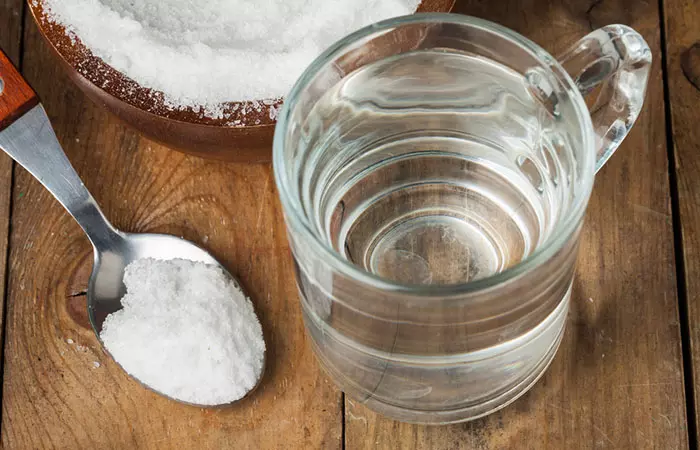
Cleaning is necessary to ensure your piercing stays safe and healthy. You can follow the steps given below (2):
- Wash your hands thoroughly with antibacterial soap and water to eliminate any dirt or bacteria that could transfer to the piercing.
- Prepare a saline solution using warm distilled water and ¼ teaspoon of non-iodized sea salt. This will help clean the piercing without interfering with the normal healing process, as it is an isotonic solution (3). An isotonic solution is one that has the same salt and water concentration as the body’s natural fluids.
- Soak a clean gauze pad or cotton ball in the solution.
- Gently cleanse the front and back of the piercing.
- Remove any crust or debris from the piercing site gently.
- Avoid rotating or moving the jewelry excessively as this can irritate the piercing.
- Rinse with clean water and pat dry with gauze or a paper towel.
- Repeat twice daily (morning and evening).
Cleaning is one key component of the aftercare process. Check out the next section for some other aftercare practices to follow.
Aftercare Tips For A Jestrum Piercing
Proper care is essential for promoting healing and preventing infection. Your piercer will provide you with the following instructions (2):
- Avoid touching the facial piercing with dirty hands to avoid introducing bacteria into the piercing site.
- Refrain from using swimming pools or hot tubs until it is fully healed to prevent contamination.
- Be mindful of your oral hygiene to prevent bacteria from accumulating around the piercing site.
- Disinfect phones and eyeglasses to avoid contamination.
- Avoid sleeping on the piercing to prevent irritating the piercing.
- Refrain from using makeup and other beauty products on or around the piercing site to avoid irritation.
Neglecting to clean your piercing daily can increase the risk of developing complications. Check out the section below to know more.
Risks Of A Jestrum Piercing
While jestrum piercings can be a stylish and unique form of self-expression, they do come with the following potential risks:
- Infection: Improper hygiene may increase the risk of introducing bacteria to the piercing site. This may cause infection symptoms such as yellow or green discharge, redness, swelling, or warmth (4). Seek medical attention if you do so.
- Allergic Reaction: The presence of nickel in some jewelries may cause allergic reactions in some people (5).
- Rejection: The body may perceive the jestrum lip piercing jewelry as a foreign subject and push it out (6).
- Damage: The jewelry may rub against the teeth and gums and cause tooth fracture, gum damage, and inflammation (7).
Remember to choose a reputable piercer who follows strict hygiene practices and uses high-quality, hypoallergenic jewelry to prevent the above complications.
This edgy and versatile piercing allows people to experiment with different styles and looks daily. Scroll down to the next section for some amazing jestrum piercing jewelry styles.
Types Of Jestrum Jewelry
When it comes to jestrum piercings, there is a variety of jewelry options to suit different styles and preferences:
1. Labret Studs
View this post on Instagram
They consist of a straight bar with a flat disc on one end and a removable decorative top on the other. Flat backs are ideal for comfort and healing.
2. Curved Barbells
View this post on Instagram
They have a slightly curved shape designed to fit comfortably in the jestrum piercing and typically feature decorative balls or gems on each end. They also offer more design freedom and customization.
3. Circular Barbells
View this post on Instagram
They are also known as horseshoe rings due to their horseshoe-like shape with removable balls or spikes on each end. The vibrant colors and designs allow people to sport quirky and whimsical looks.
4. Captive Bead Rings (CBRs)
View this post on Instagram
They consist of a hoop with a captive bead or ball that snaps into place. They are perfect for those who prefer a subtle yet stylish design for their piercing.
 Did you know?
Did you know?Along with jewelry style, selecting the right material and size is essential for both comfort and style. Here are some tips to help you make the perfect choice (7):
- Avoid cheap, low-quality jewelry that can irritate your skin and cause complications.
- Choose hypoallergenic and high-quality materials such as surgical-grade stainless steel, gold, or titanium for long-term wear to avoid irritation or allergic reactions.
- Ensure your jestrum jewelry fits properly by selecting the right gauge (thickness) and length.
But even with the right jewelry material, size, and style, you need to wait at least 8-12 weeks before changing your initial piercing jewelry. Once ready, you can follow these steps:
- Thoroughly wash your hands thoroughly with antibacterial soap and prepare a sterile saline solution.
- Unscrew the current jewelry carefully.
- Clean the piercing and jewelry with saline solution.
- You can also boil the jewelry for a few minutes to reduce the risk of bacterial infection.
- Insert the new jewelry gently, ensuring secure closure.
- Avoid touching or rotating the jewelry.
- Repeat the cleaning routine twice daily for a few days.
It is important to weigh the risks against the potential benefits before you zero in on your decision about this piercing. Check out the section below to know more.
Pros And Cons Of A Jestrum Piercing
Like any other body modification, a jestrum piercing has its own set of pros. Here are some of them:
Pros
- It has a unique and eye-catching aesthetic.
- It adds a touch of mystery and intrigue.
- It complements various facial features and hairstyles.
However, it is also important to take the cons into consideration in your decision-making process. Some of them include:
Cons
- It is higher on the pain scale.
- It can cause complications such as rejection or infection.
Many confuse a jestrum piercing with a Medusa piercing due to the similar location. However, there are key differences between the two. Learn more about them below.
Jestrum Piercing Vs. Medusa Piercing
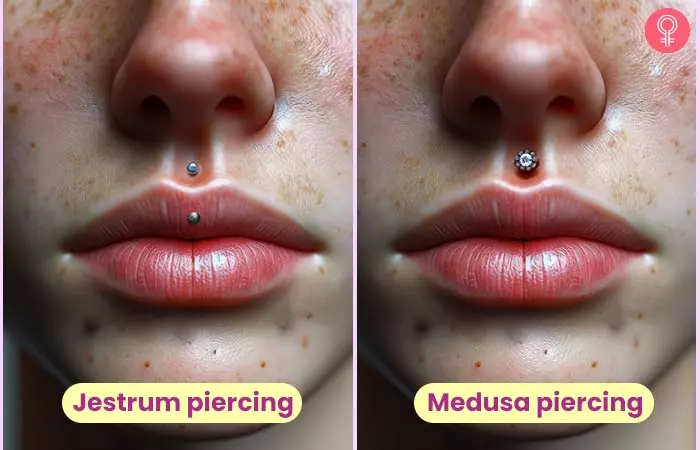
Jestrum and Medusa piercings are often confused due to their placement in the upper lip area, but they have the following differences:
- Jestrum Piercing: Vertical piercing that goes through the philtrum and exits below the septum. It is a type of double piercing (two piercing holes are made).
- Medusa Piercing: Vertical piercing through the philtrum above the center of your upper lip. It is a single piercing.
Ultimately, the choice depends on your personal preference and facial anatomy. When considering either piercing, it is essential to consult a professional piercer to tailor the piercing to your style preferences.
A jestrum piercing offers a unique and captivating way to express your individuality. Its striking placement just below the nose adds a touch of whimsy and charm to your smile. Remember, this piercing is more than just an adornment; it is a commitment to dedicated aftercare. Weigh its pros and cons carefully, considering your personal style, pain tolerance, and commitment level. Consult a reputable piercer to discuss your anatomy, jewelry options, and any concerns you may have.
Frequently Asked Questions
Can I eat and drink normally with a jestrum piercing?
Yes, you can eat and drink normally with a jestrum piercing. However, it is recommended to avoid spicy foods in the initial days after getting the piercing to prevent irritating the piercing site.
Can anyone get a jestrum piercing, or are there specific considerations?
Generally, anyone can get a jestrum piercing. However, one must consult a piercer to see if their facial anatomy will allow them to get the piercing.
Can I kiss or engage in oral activities with a fresh jestrum piercing?
It is best to avoid kissing or engaging in oral activities with a fresh jestrum piercing to prevent infection and irritation. Wait till the healing period is complete to do so. If you are unsure, consult your piercer for detailed advice and guidance.
Discover the complete truth about jestrum piercing! From pain levels and healing time to aftercare tips and potential risks, check out the following video for everything you need to know for a successful piercing experience.
Personal Experience: Source
StyleCraze's articles are interwoven with authentic personal narratives that provide depth and resonance to our content. Below are the sources of the personal accounts referenced in this article.
(i) Jestrum/Vertical Medusa Piercinghttps://www.youtube.com/watch?v=6z9Us213jkk
References
Articles on StyleCraze are backed by verified information from peer-reviewed and academic research papers, reputed organizations, research institutions, and medical associations to ensure accuracy and relevance. Read our editorial policy to learn more.
- Long Term Use of Aspirin and the Risk of Gastrointestinal Bleeding
https://www.ncbi.nlm.nih.gov/pmc/articles/PMC3086018/ - SUGGESTED AFTERCARE FOR BODY PIERCINGS
https://safepiercing.org/aftercare/ - Water for wound cleansing
https://pmc.ncbi.nlm.nih.gov/articles/PMC9473482/ - CARING FOR NEW PIERCINGS
https://www.aad.org/public/everyday-care/skin-care-basics/tattoos/caring-for-pierced-ears - Molecular Mechanisms of Nickel Allergy
https://www.researchgate.net/publication/292946913_Molecular_Mechanisms_of_Nickel_Allergy - Complications of body piercing
https://www.researchgate.net/publication/7426909_Complications_of_body_piercing - Piercing and Oral Health: A Study on the Knowledge of Risks and Complications
https://www.ncbi.nlm.nih.gov/pmc/articles/PMC7013412/ - JEWELRY FOR INITIAL PIERCINGS
https://safepiercing.org/jewelry-for-initial-piercings/
Read full bio of Eve Phillips
Read full bio of Vaishali Sinha
Read full bio of Eshna Das
Read full bio of Shreya Mukherjee









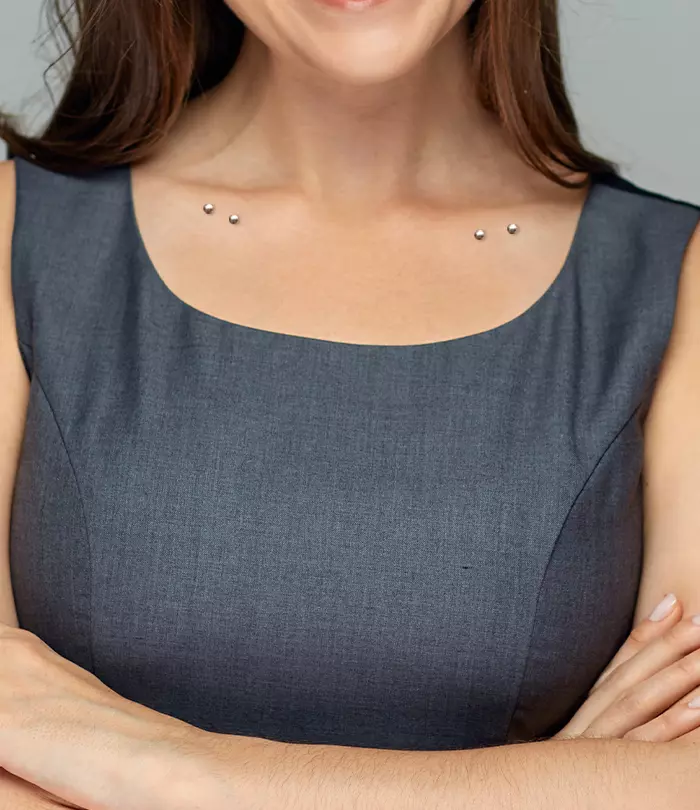

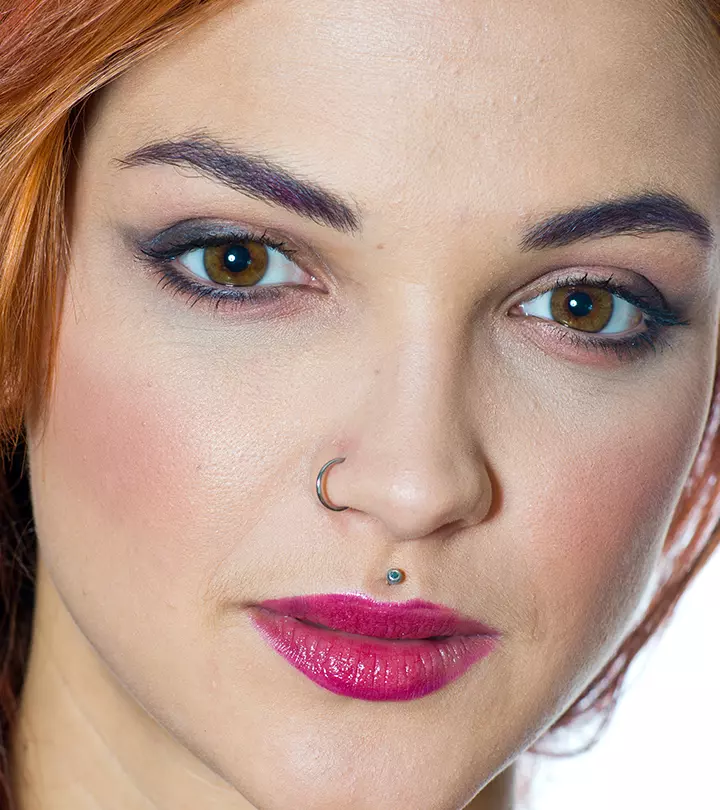
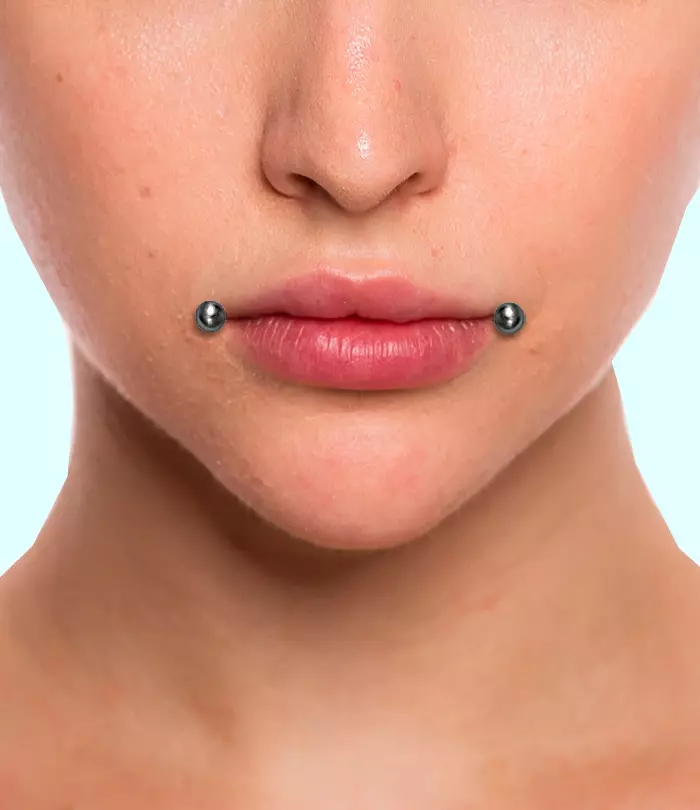



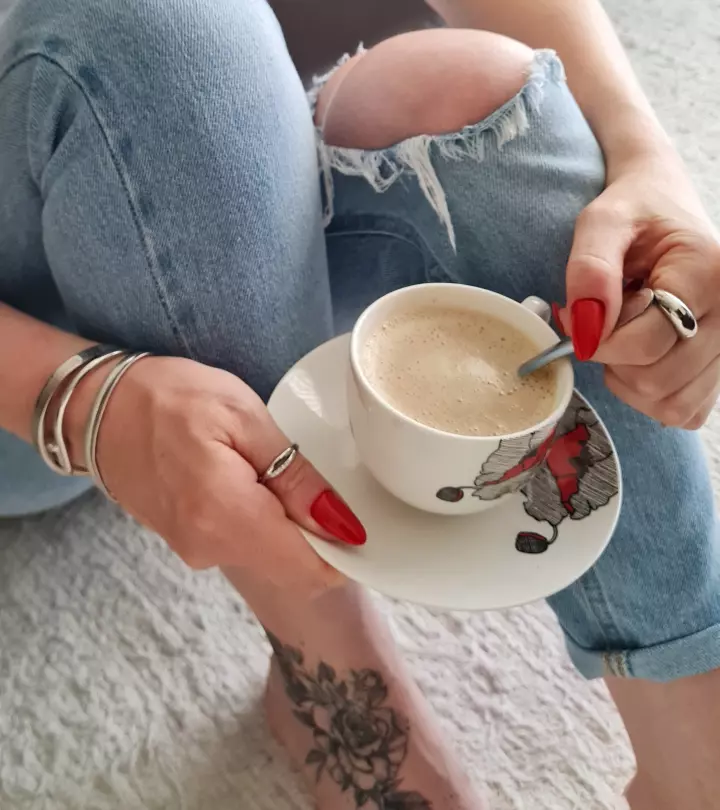

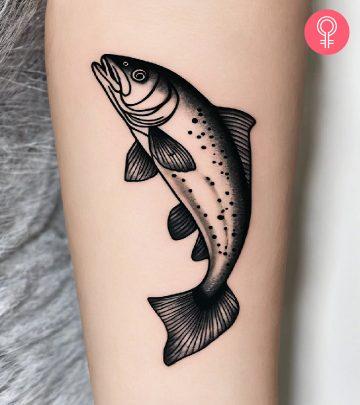


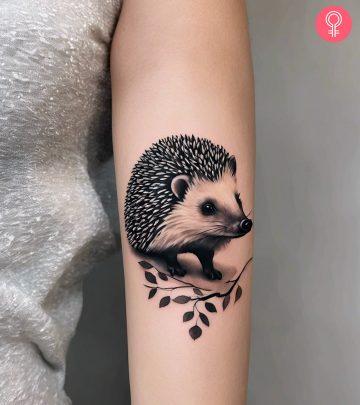





Community Experiences
Join the conversation and become a part of our empowering community! Share your stories, experiences, and insights to connect with other beauty, lifestyle, and health enthusiasts.